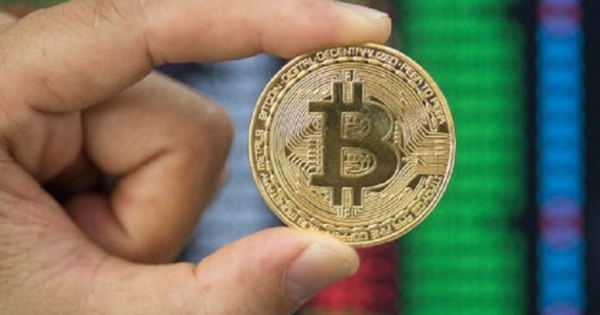Money and digital asset management, what policy for Vietnam?
- Tram Ho

However, each country has a different form and policy for using digital currencies and digital assets.
Up to now, central banks (central banks) from many countries around the world have warned about the financial risks of virtual currency exchanges. The development of cryptocurrencies and digital assets and the emergence of acquired cash flows have also caused and caused many regulators in many countries to face great risks – Accordingly, when private digital currencies such as Bitcoin, Libra, JPM Coin, SBI Coin used in the exchange of goods and services in global remittance payments are large enough to create an underground banking system, they will threaten the payment system. domestic and international payments of all countries because they can overwhelm central banks’ control of the amount of money in circulation. Due to the anonymity and use of cryptography, digital currency, non-state digital assets can be transferred anywhere, making it very difficult to control currency entering / leaving the country, affecting the market. foreign exchange markets, exchange rate regulation, control of money laundering, corruption and terrorist financing. Therefore, it is imperative that countries strengthen the management of Big Tech, strictly monitor data collection activities, while data governance policies and mechanisms are still not general, not uniform. most international:
US: Currently at the national level there is still no consistent legal approach to cryptocurrencies. Cryptocurrency and non-cash payment regulations for exchanges vary from state to state. The term “cryptocurrency” also varies between federal agencies. Accordingly, the US Securities and Exchange Commission (SEC) considers cryptocurrencies a security, while the Commodity Futures Trading Commission (CFTC) considers Bitcoin a commodity asset and allow publicly traded crypto derivatives.
European Union (EU): Requires member states to implement even tighter controls to reduce risks posed by virtual currency assets, and at the same time, through a digital finance package newly expanded with the goal of improving the competitiveness of the continent in technology and Fintech sector, while minimizing risks and ensuring financial stability in the economy. The new regulatory regulatory framework also includes a comprehensive new legislative proposal for crypto assets, called the Cryptocurrency Assets Market (MiCA), which is being developed to help streamline public regulation. distributed ledger technology (DLT) and virtual assets in the EU to operate and protect users and investors. The European Central Bank (ECB) is considering the possibility of issuing its own digital currency. Virtual currencies and digital currencies are only a means of exchange of value, without mandatory liquidity, even more not a legal currency, so the sooner it is necessary to legalize both the function as a means of payment and the mechanism of payment. currency risk management.
Japan: Digital currency trading and exchange activities are governed by the revised and supplemented Payment Services Act of 2009. Accordingly, the Payment Services Law regulating digital currency is understood as a legal means of payment but not a currency. Digital currency is only defined by the paying parties as an asset value. The legal currency is the national official currency that is issued only by the central bank of the country, ensuring liquidity and managed in a centralized and unified manner by the competent state agencies. As such, in Japan, the State does not recognize digital currency as a currency but only as a digital asset, so there is no required liquidity guarantee. Digital currency is only valid for parties that accept it as a kind of digital means of payment.
Japan calls it a digital currency only because it has the characteristics of being stored on electronic devices or electronic methods and digital currency transactions can only be done through the internet system. The Financial Services Agency of Japan (FSA) is a national financial regulatory agency responsible for supervising and managing activities related to the trading and exchange of digital currencies. Japan’s Payment Services Law requires all digital currency exchanges to be registered under a license from the FSA. At the same time, companies dealing in digital currency exchange services are obliged to keep accounting records of digital currency transactions at the enterprise and submit business reports to the FSA at the end of each fiscal year. . The FSA has the power to inspect businesses both periodically and irregularly, and has the authority to require businesses to take measures to improve business operations within the statutory deadlines.
China (China): The Chinese state has issued a complete ban on crypto-related activities. Accordingly, the Central Bank of China (PBoC) has banned financial institutions from trading Bitcoin, not considering cryptocurrencies as legal tender. However, a number of Chinese courts have ruled in mid-2020 that cryptocurrencies are assets that should be protected by law. Despite the near-comprehensive ban on crypto-asset trading and related services, the law still allows crypto mining activities and China may soon lift or relax the ban on crypto-currency mining. When it comes to cryptocurrencies, recent statements by government officials in favor of Blockchain technology and that cryptocurrency mining is still considered legal has led many to speculate that China intends to become “ leader in this field. However, the schedule is yet to be determined. For many years, the PBoC has been working to introduce an official state digital currency and is currently piloting the digital yuan in payments in many localities.
Canada : Canadian law allows the use of digital currency. Accordingly, consumers can use digital currencies to purchase goods and services on the internet and in companies that accept digital currencies. At the same time, consumers can buy and sell digital currency on open exchanges just like buying and selling securities. However, cryptocurrencies, including Bitcoin, are not considered legal tender in Canada. Although Canada does not recognize digital currencies as legal tender, digital currencies are regulated as financial instruments, so digital currencies can be used to pay for transactions. Canadian tax regulations also apply to cryptocurrency transactions.
Recommended for Vietnam
With the development of science and technology, information and communication is covering the world, the penetration and rapid spread of digital money also follows and not excluded, Vietnam also develops a national digital currency. following an ongoing trend. I think our problem is how to regulate digital money rather than banning this activity. So:

Vietnam needs to build a specialized state management agency to make policy and supervise digital currency activities. Trading, exchanging and providing services on digital currencies will have a high degree of risk and have a great influence on national monetary policies if not properly and strictly controlled. Therefore, it is appropriate to establish and empower a specialized national agency to manage and supervise digital currency-related activities like Japan’s FSA in the framework of framework development. regulations on the management of the digital currency market in Vietnam.
Applying the experience of Japan, Vietnam also needs to develop a plan to issue a digital currency to be used nationwide. Japanese electronic currency called Japan Coin – J-Coin. The J-Coin is “exchanged” to the Japanese Yen as the national paper currency and is used for payments and remittances through a mobile phone app.
At the same time, there should be legal regulations to affirm that digital currency is not a legal currency, but is recognized as an asset that carries value, namely the value of property rights. In fact, this property right belongs to the group of movable property rights as defined in Article 107 of the 2015 Civil Code of Vietnam.
Vietnam needs to amend, complete and supplement the legal content in the management of money in general and digital currency in particular to prevent acts of abuse, embezzlement, corruption, money laundering.. .illegal. The basic solutions to be done in our country right now, in my opinion, are: In the field of in/out an amount of money for the purpose of sending/payment/transfer or lending in cash or non-cash, all must go through. the national data management system and financial institutions licensed to operate payments, including the Central Bank’s Data Administration Center located at the Vietnam National Credit Information Center (CIC) and the system of Banks and financial institutions licensed to conduct electronic payment transactions.
Accordingly, it is necessary to add the function of controlling the amount of payment for CIC in addition to the function of controlling the current fiat credit information… The use of all money sources from the agency’s account, bank card, organizations and individuals to pay for goods, transfer money to the beneficiary… are required to go through the information receiving line of CIC before reaching the beneficiary. This important principle needs to be added to the functions and duties of CIC and added to the current Law on Vietnamese Credit Institutions.
In the immediate future, Vietnam needs to encourage people to change their consumption behavior and payment methods, thereby improving their access to banking products and services, and developing the use of non-user payment methods. official cash (CTM) easy to access through Vietnam’s banking system.
All sources of money into credit institutions of individuals, businesses or non-business organizations must have income origin (salaries, sales proceeds, money from the state budget, money from selling foreign currencies, receiving other money…), recorded in amount of Vietnamese fiat currency (VND), including cash and money transfer.
Vietnam needs to build a specialized state management agency to make policy and supervise digital currency activities. The State should soon issue a decree banning the use and trading of cryptocurrencies and non-state virtual currencies of all countries operating in the financial market today.
Vietnam must amend, improve and add to the legal content in the management of money in general and digital currency in particular to prevent acts of abuse, embezzlement, corruption, money laundering… illegal. Therefore, the basic solutions that need to be done right now in our country are: In the field of in/out a certain amount of money for the purpose of depositing/payment/transfer or lending in cash or non-cash, all must be through the national data management system and financial institutions licensed to conduct payment activities, including the Central Bank’s Data Administration Center, which should be located at the Vietnam National Credit Information Center – CICB and the central bank’s data management system. Banks and financial institutions are licensed to conduct electronic payment transactions.
In addition, it is necessary to strictly follow the principle: In Vietnam, only Vietnamese currency is used as currency.
Specialized inspection divisions must act and take responsibility before the State for regularly inspecting, controlling and strictly handling violations of the Law on Credit Institutions and the Law on Central Bank, updated by relevant parties and public information in the mass media.
Source : Genk
